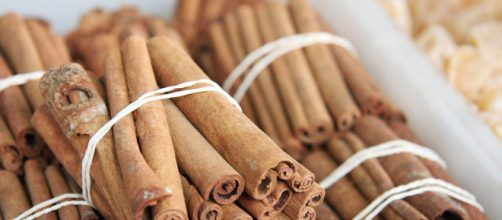Cinnamon lovers and admirers may rejoice. Cinnamon diet followers can now wear a winning smile. A recent study, published in the journal Metabolism: Clinical and Experimental, has stated that the essential oil cinnamaldehyde, responsible for cinnamon’s flavor, may help fat cells burn energy.
Cinnamaldehyde may be a natural trigger for fat burning
Researchers from the University of Michigan Life Sciences Institute said that even though they were aware that cinnamon burns fat in mice, after successful lab tests, this is the first time they have found it to be effective in humans too.
Cinnamaldehyde may be a natural trigger for the fat burning process.
However, Jun Wu, who led the research, is of the opinion that people should not straightaway start with the Cinnamon Challenge to lose weight. Further studies are necessary before giving it the green signal. The researchers took adipocytes (human fat cells) from volunteers who had different body mass indexes, ethnicities, and ages.
Times of energy surplus
Wu and her team observed thermogenesis, which is basically a process where cells start to burn energy, once the cells are treated with cinnamaldehyde. Speaking to Michigan News, Wu explained that our ancestors had a greater need to store fat in the adipocytes. This is because high-fat foods were not easily available.
This ability came in handy, especially during food scarcity and winter. All throughout our evolution, energy deficiency has been a major problem. It is only recently that energy surplus has become a major problem. It’s just the opposite. Hence, the body turns off any energy-consuming process the moment it feels there is no need for it, reports New York Daily News.
Many benefits of cinnamon
However, Forbes feels it is too early to be excited. This is still primarily a lab experiment. People should not get over-enthusiastic. Moreover, including cinnamon in one’s daily diet may not be similar to treating cells with cinnamaldehyde. The cinnamon will have to travel a frightfully long way to ultimately reach the fat cells.
In fact, it may not necessarily always reach the fat cells. It is also not known how much cinnamon a person will have to ingest to really burn fat. On the other hand, earlier research did show that having cinnamon may significantly lower total cholesterol, fasting blood sugar, triglyceride levels, LDL cholesterol, and higher HDL cholesterol levels Type 2 diabetes patients.
Cinnamon may also help with better insulin responses, checking blood sugar levels, and slower emptying of their stomach (this helps people in feeling full for a longer period of time). Cinnamon is a complex spice. Hence, further studies are required.


